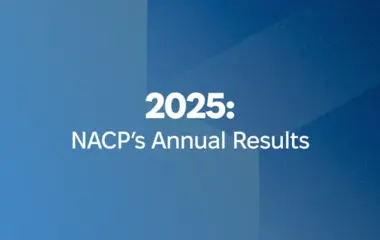Conflicts of interest are a common phenomenon in the activities of public officials. The National Agency on Corruption Prevention (NACP) explained its essence and components in more detail here.
Today, we will consider what steps an official should take if a conflict of interest does arise in his or her work or if a subordinate reports a conflict of interest.
Actions to be taken by an official who has a conflict of interest in his/her official activities
The main thing that a public official should remember is that the conflict of interest must be resolved. Until the conflict of interest is resolved, it is prohibited to take actions or make decisions related to it.
In addition, by the end of the next business day after the public official becomes aware of the conflict of interest, he or she must notify his or her immediate supervisor or another person specified by law or the NACP.
The conflict of interest may be resolved by a decision of the direct supervisor or other authorised person (external resolution of the conflict of interest) or by the public official himself/herself by depriving the relevant private interest (independent resolution of the conflict of interest).
To whom and how to report a conflict of interest?
The addressee of a conflict of interest notification may be different for different categories of public officials.
These categories can be divided into:
- officials who have a direct supervisor (the conflict of interest is reported to the direct supervisor);
- officials who do not have a direct supervisor (the conflict of interest is reported to the head of the body authorised to dismiss them or initiate their dismissal, and in the absence of such a head - to the NACP);
- members of collegial bodies, if the conflict of interest arose in connection with participation in the activities of the collegial body (the conflict of interest is reported to the collegial body);
- officials for whom the law provides for a special procedure for reporting conflicts of interest.
In order to understand who exactly you have to notify of a conflict of interest, we recommend taking a test developed by the NACP.
The form of notification of a conflict of interest is not regulated by law, but the NACP advises to do so in writing, using the form and registering the document in the document management system. A written statement, firstly, will be an official confirmation that you have informed about the conflict of interest, and secondly, it will give the manager the opportunity to carefully assess the situation and choose the most effective way to resolve it.
What should a manager do if a subordinate reports a conflict of interest?
If you work in the public service and have subordinates, it is your responsibility to resolve conflicts of interest within the team.
If you receive a report of a conflict of interest from a subordinate, you have two working days to make a decision and inform them of the chosen method of settlement.
How to choose the right measure? It depends on the specific circumstances - here are the key options.
1. Removal from performing tasks or making decisions is applied when:
- the conflict of interest is temporary;
- it is possible to assign the task to another employee.
2. Restriction of access to information is appropriate when:
- the conflict of interest is permanent;
- the conflict of interest is related to access to certain information;
- the person has the opportunity to continue the proper performance of his/her duties in the position subject to restriction of access to information;
- it is possible to entrust the work with the relevant information to another employee.
3. Review of official powers is applied in the following cases:
- the conflict of interest is permanent;
- the conflict of interest relates to certain powers;
- it is possible to transfer these powers to another employee;
- the person has the opportunity to continue to perform his/her duties properly in the event of such a review.
4. External control may be applied if:
- the conflict of interest is permanent or temporary;
- other measures (removal, restriction of access, review of powers) do not work.
5. Transfer to another position is applied when:
- the conflict of interest is permanent;
- the above measures cannot be applied;
- there is a vacant position that meets the employee's qualifications and the employee agrees to the transfer.
- 6. Dismissal is possible when the conflict of interest is permanent and other settlement methods, in particular due to the lack of consent to the transfer or the deprivation of private interest, are impossible.
Important! A particular measure can only be applied if all the necessary conditions are met. If at least one of the conditions is not met, such a measure cannot be used.
In order to figure out which external conflict of interest resolution measure is best for your case, we recommend that you take the manager's test to determine the most appropriate external conflict of interest resolution measure for your subordinates.
Effective management of conflicts of interest is the key to transparent and honest work of your team!









